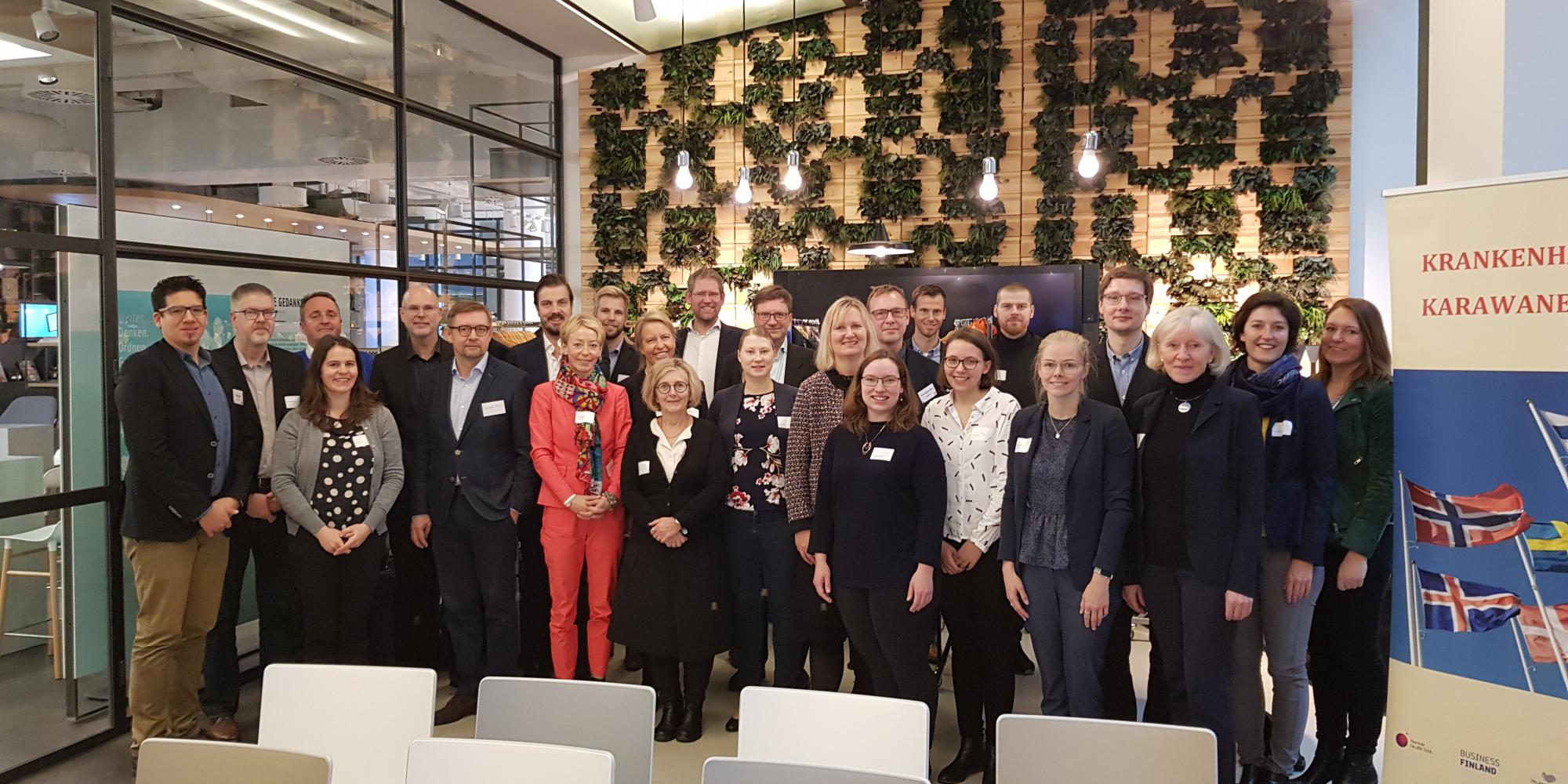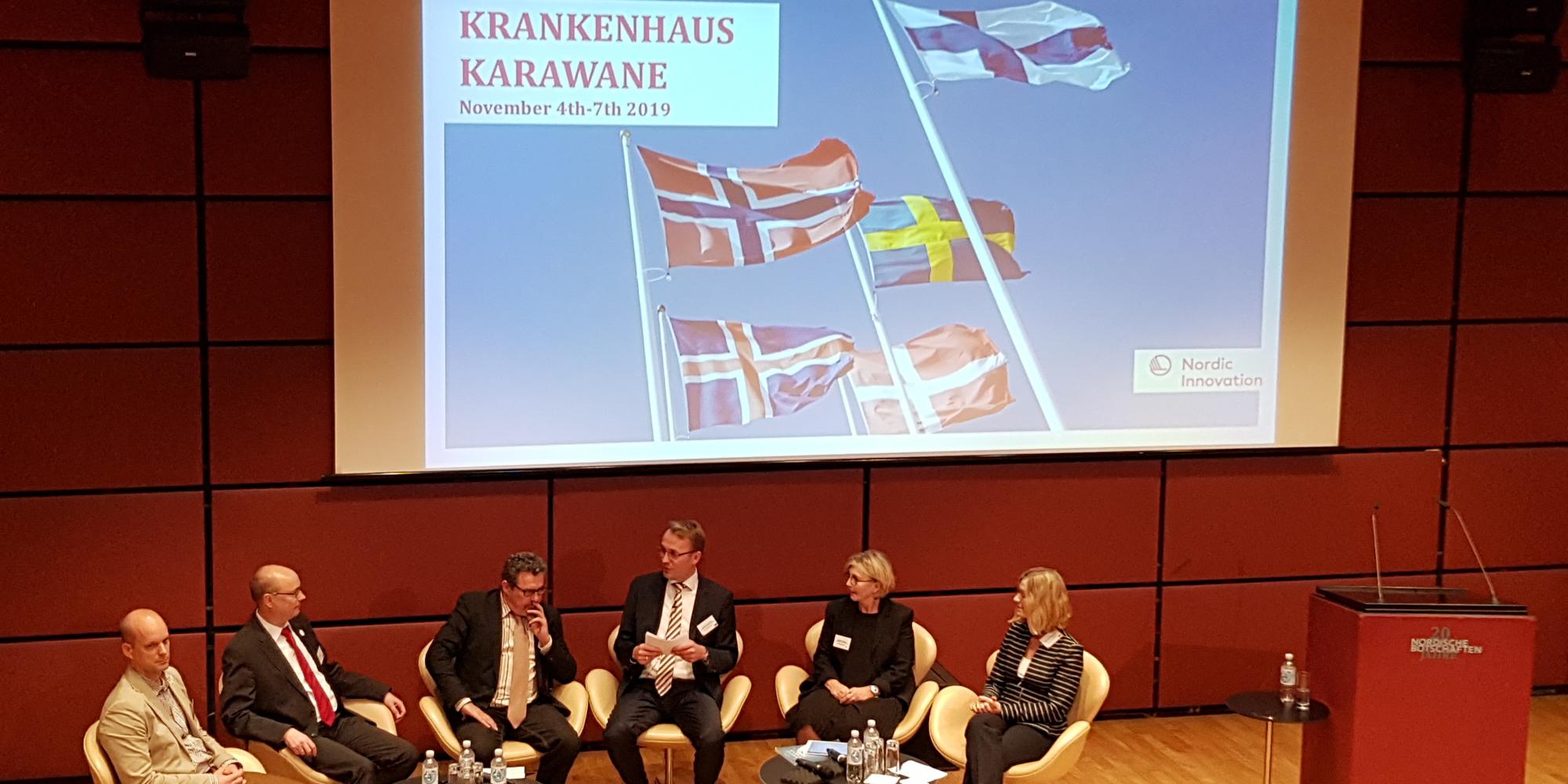The four-day long event titled the Krankenhaus Karawane travelled on one of the main routes through Germany, from the capital Berlin to Munich, the metropole in the South. The Nordic participants were literally caravaneers — traveling together, taking a deep dive into the German hospital system and facilitating a bilateral dialogue on health care today and of the future.
Co-funded through Nordic Innovation’s Nordic Welfare Solutions program – one of six flagship projects that makes up the five Nordic prime ministers’ initiative Nordic Solutions to Global Challenges, the roadshow gathered 20 Nordic health care companies, clusters, organizations and embassies in addition to 10 panelists and 30 speakers.

The participants visited the Nordic Embassies in Berlin where Mr. Svein Berg, the Managing Director of Nordic Innovation, delivered an opening speech underscoring the need for cooperation between the Nordics and Germany on welfare solutions.
“We have a long tradition for cooperation in the Nordic countries and there is a strong consensus that we can contribute even better to the global agenda when we do it jointly. Each of the Nordic countries are small on their own, but together we are stronger", highlighted Mr. Berg and added:
“New medical technology and welfare solutions are constantly being developed in the Nordics in order to make the health care system more efficient and patient entered. Given the challenges that both the Nordic and Germany are facing and that both have a high level of expertise and are technological advanced, this represent a potential for a fruitful cooperation.

From this point of departure, the aim of the Krankenhaus Karawane was to showcase best practices from the Nordic countries and inspire dialogue. The health care systems in the Nordics and Germany are facing the same challenges: demographic and digital change with limited budgets. This calls for action and raises the question on how we can transform health care towards a more coherent, transparent and efficient system.
We consider digitalization as an enabler for change. However, it also changes responsibilities and traditions for delivering health care. Therefore, we organized this Nordic fact-finding trip to learn from our German counterparts, discuss the possible changes to a patient centered health care system and to facilitate cooperation.
– Lina Gandløse Hansen, Consul General of Denmark in Munich
“The Nordics have embarked this transformation journey towards a more specialized and patient centered health care system. We consider digitalization as an enabler for change”, says Lina Gandløse Hansen, Consul General of Denmark in Munich, responsible for the Krankenhaus Karawane, and adds:
“However, digitalization also changes responsibilities and traditions for delivering health care. Therefore, we organized this Nordic fact-finding trip to learn from our German counterparts, discuss the possible changes to a patient centered health care system and to facilitate cooperation."

With a varied program, Krankenhaus Karawane contributed to this knowledge sharing on the German healthcare system and provided the Nordic participants with valuable insights on how the market is financed, how to get access to it and how to find German collaboration partners. By showcasing their solutions, the Nordic companies could take the first steps into the market with clear potential for further cooperation.
The participating companies also benefited from exchanging market experiences amongst themselves as they got to know each other and learn about solutions and different actors in all the four participating Nordic countries.
